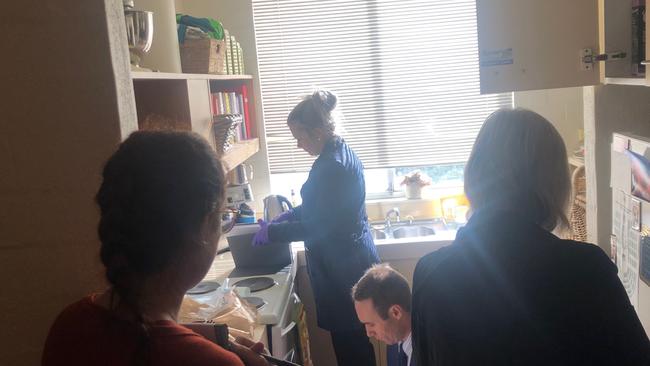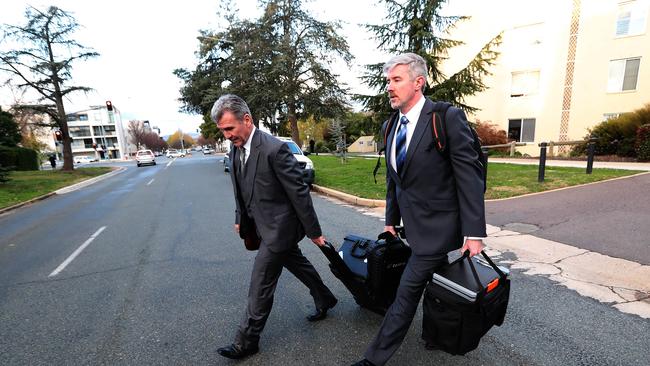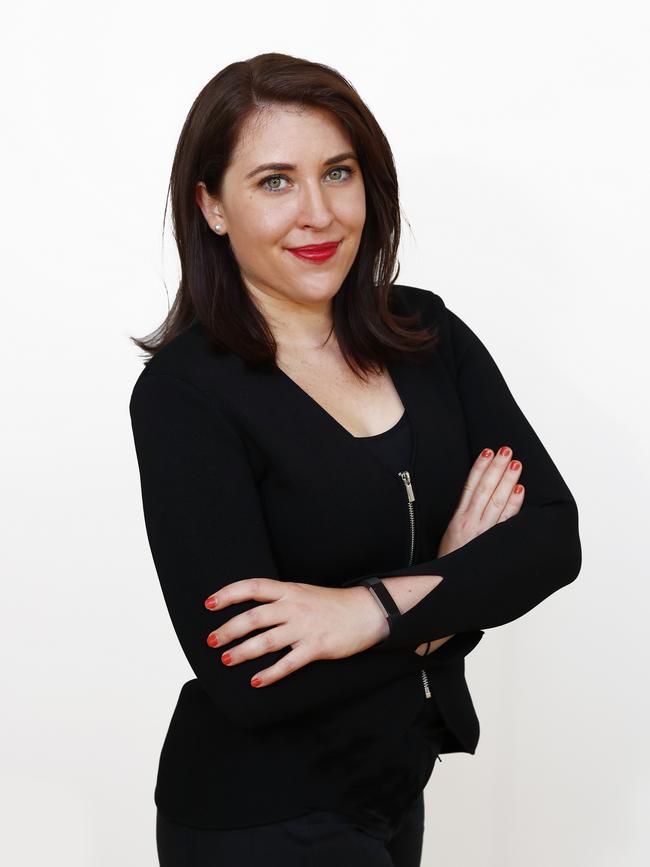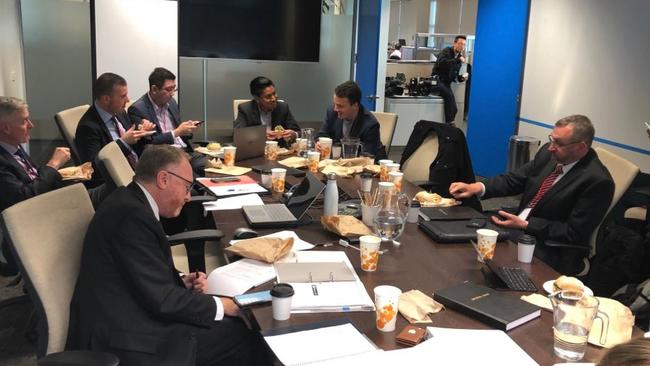‘Invasion of privacy’: Annika Smethurst’s confronting seven-hour police raid
Sunday Telegraph political editor Annika Smethurst says she found the police raid on her home “exceptionally confronting and an invasion of privacy”
Sunday Telegraph political editor Annika Smethurst says she found the police raid on her home “exceptionally confronting and an invasion of privacy”.
Officers from the Australian Federal Police searched her house for almost seven and a half hours on Tuesday, even going so far as to opening up her fridge, checking her oven and rummaging through her sewing kit.
She had no warning whatsoever of the raid and says she would have been happy to co-operate and “but I wasn’t given the option to co-operate but it was put upon me”.


MORE
PM refuses to condemn raid on News Corp journalist
Annika Smethurst raid was more than an invasion of privacy
The award-winning journalist said while the police were “not heavy handed”, the drawn-out experience of having seven officers examine the entire contents of her home, as well as her online history, made her feel “exposed”.
“This was put upon me and I felt very intimidated,” she said. “The fact they came to my house was exceptionally confronting and quite an invasion of privacy.”

Ms Smethurst said the police went through her bedroom, through the pockets of her clothes and her handbags and even her sewing basket where she was making patchwork quilts for friends who had babies recently.
“They went through my bookshelves and through the pages of every book, cookbooks, page by page,” she said. “They found things I didn’t know I had.
“They looked in my oven, behind picture frames, through every DVD, through my Christmas decorations.
“If I went looking for a USB in my house I wouldn’t know where one was but they managed to find 17 in different drawers and pockets.”
She said the raids, including those on the ABC, were a “disturbing and worrying trend”.
“I think the stories are in the public interest and important for the public to know and journalists should be able to do their job without threat,” she said.
“The journalist business model relies on security and sensitivity and secrecy and I felt very exposed. I need to gain trust from sources and contacts.

“This makes journalism very daunting for journalists in the future and also for whistle blowers in the public service or any other area, who see wrongdoing or something of concern and want to speak up.”
She said there had been an “outpouring” of support from friends, family, politicians and fellow journalists from around the world.
“I can look after myself, but I believe these stories are important for Australians to know about. They are in the public interest.”



